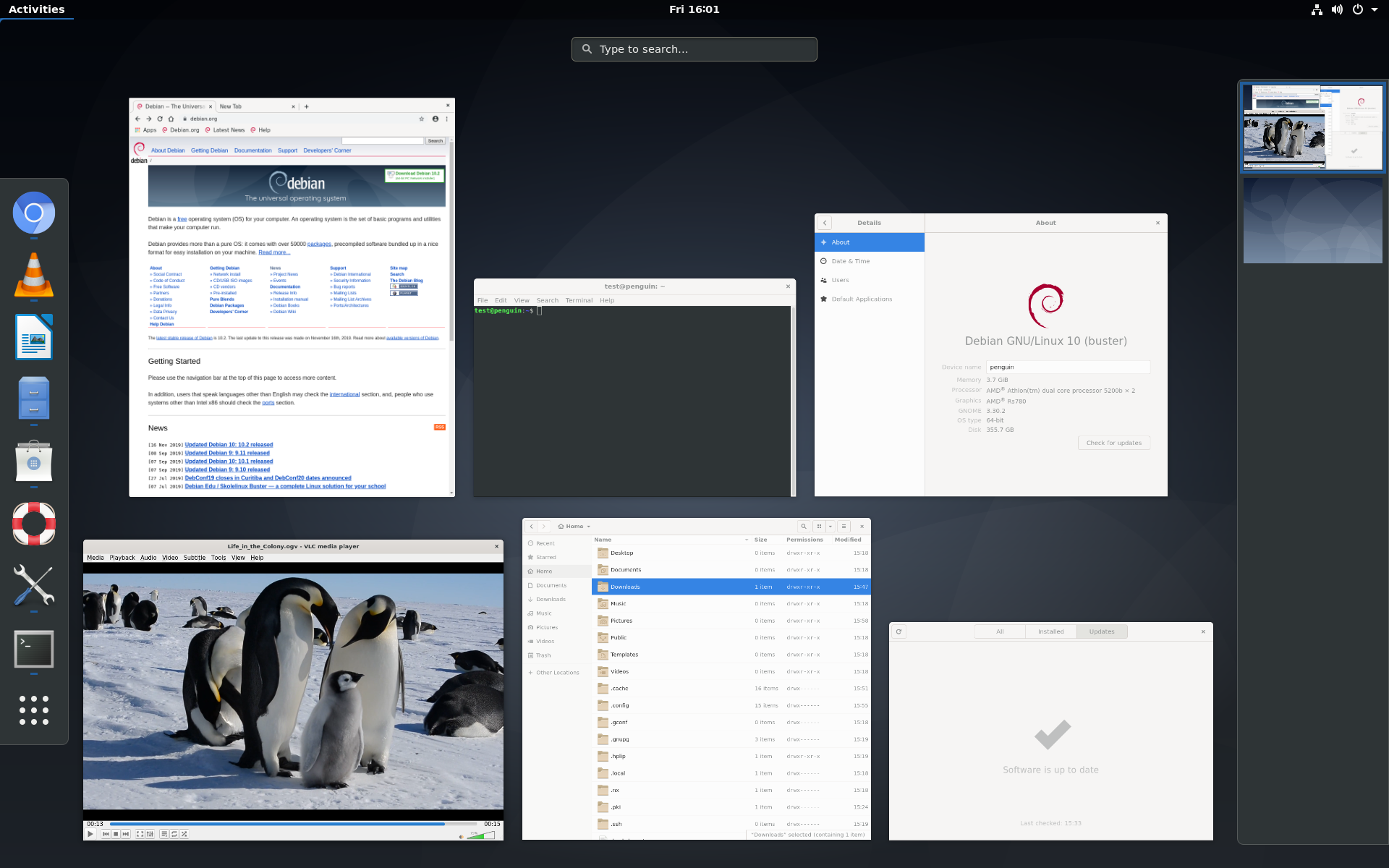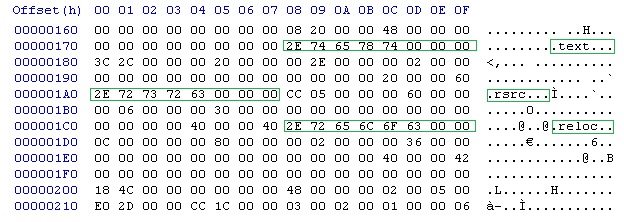|
RISC-V
RISC-V (pronounced "risk-five") is an open standard instruction set architecture (ISA) based on established reduced instruction set computer (RISC) principles. The project commenced in 2010 at the University of California, Berkeley. It transferred to the RISC-V Foundation in 2015, and from there to RISC-V International, a Swiss non-profit entity, in November 2019. Similar to several other RISC ISAs, e.g. Amber (processor), Amber (ARMv2)(2001), SuperH#J_Core, J-Core(2015), OpenRISC(2000), or OpenSPARC(2005), RISC-V is offered under royalty-free open-source licenses. The documents defining the RISC-V instruction set architecture (ISA) are offered under a Creative Commons license or a BSD licenses, BSD License. Mainline support for RISC-V was added to the Linux 5.17 kernel in 2022, along with its toolchain. In July 2023, RISC-V, in its 64-bit computing, 64-bit variant called riscv64, was included as an official architecture of Linux distribution Debian, in its Debian version histor ... [...More Info...] [...Related Items...] OR: [Wikipedia] [Google] [Baidu] |
SiFive
SiFive, Inc. is an United States, American Fabless manufacturing, fabless semiconductor company and provider of commercial RISC-V processors and Integrated circuit, silicon chips based on the RISC-V instruction set architecture (ISA). Its products include cores, system on a chip, SoCs, Intellectual property, IPs, and development boards. SiFive is one of the first companies to produce a chip that implements the RISC-V ISA. History In 2015, researchers Krste Asanović, Yunsup Lee, and Andrew Waterman from the University of California, Berkeley, University of California Berkeley founded SiFive. On November 29, 2016, SiFive released the Freedom Everywhere 310 SoC and the HiFive development board. This made it the first company to produce a chip that implements the RISC-V ISA since universities had already produced RISC-V processors. Naveed Sherwani was appointed as the CEO in August 2017. In October the same year, SiFive did a limited release of its U54-MC, which was reported to b ... [...More Info...] [...Related Items...] OR: [Wikipedia] [Google] [Baidu] |
Reduced Instruction Set Computer
In electronics and computer science, a reduced instruction set computer (RISC) is a computer architecture designed to simplify the individual instructions given to the computer to accomplish tasks. Compared to the instructions given to a complex instruction set computer (CISC), a RISC computer might require more instructions (more code) in order to accomplish a task because the individual instructions perform simpler operations. The goal is to offset the need to process more instructions by increasing the speed of each instruction, in particular by implementing an instruction pipeline, which may be simpler to achieve given simpler instructions. The key operational concept of the RISC computer is that each instruction performs only one function (e.g. copy a value from memory to a register). The RISC computer usually has many (16 or 32) high-speed, general-purpose registers with a load–store architecture in which the code for the register-register instructions (for performin ... [...More Info...] [...Related Items...] OR: [Wikipedia] [Google] [Baidu] |
Debian Version History
Debian releases do not follow a fixed schedule. Recent releases have been made around every two years by the Debian Project. The most recent version of Debian is Debian version 12, codename "Bookworm". The next up and coming release of Debian is Debian 13, codename "Trixie". Debian always has at least three active branches at any time: "stable", "testing" and "unstable". The stable branch is considered the primary release and what most people refer to when talking about Debian. The testing branch contains packages that have been imported from unstable. Testing has significantly more up-to-date packages than stable and is frozen some time before a release to become the next version of Debian. The unstable release (also known as Sid) is the branch where active development takes place. It is the most volatile version of Debian. When the Debian stable branch is replaced with a newer release, the current stable becomes an "oldstable" release. When the Debian stable branch is replaced ... [...More Info...] [...Related Items...] OR: [Wikipedia] [Google] [Baidu] |
Andes Technology
Andes Technology Corporation is a Taiwanese supplier of 32/64-bit embedded CPU cores and a founding Premier member of RISC-V International. It focuses on the embedded market and delivers CPU cores with integrated development environment and associated software and hardware for SoC development. Andes is ranked the fifth IP company in the world. By the end of 2022, the cumulative volume of Andes-Embedded SoCs has surpassed 12 billion. History Andes was founded in Hsinchu Science Park, Taiwan in 2005 and went public on the Taiwan Stock Exchange and began trading on 14 March 2017. In 2016, Andes joined RISC-V International Association and became the founding Premier member in 2020. In 2017, Andes expanded its product lines by adding RISC-V processors based on AndeStar™ V5 architecture. Applications Andes CPU cores are applied to applications including 5G, ADAS, AI/machine learning, AR/VR, audio, blockchain, Bluetooth, cloud computing, data centers, gaming, GPS, IoT, MCU, securi ... [...More Info...] [...Related Items...] OR: [Wikipedia] [Google] [Baidu] |
64-bit Computing
In computer architecture, 64-bit integers, memory addresses, or other data units are those that are 64 bits wide. Also, 64-bit central processing units (CPU) and arithmetic logic units (ALU) are those that are based on processor registers, address buses, or data buses of that size. A computer that uses such a processor is a 64-bit computer. From the software perspective, 64-bit computing means the use of machine code with 64-bit virtual memory addresses. However, not all 64-bit instruction sets support full 64-bit virtual memory addresses; x86-64 and AArch64, for example, support only 48 bits of virtual address, with the remaining 16 bits of the virtual address required to be all zeros (000...) or all ones (111...), and several 64-bit instruction sets support fewer than 64 bits of physical memory address. The term ''64-bit'' also describes a generation of computers in which 64-bit processors are the norm. 64 bits is a Word (computer architecture), word size that defines ... [...More Info...] [...Related Items...] OR: [Wikipedia] [Google] [Baidu] |
Alibaba Group
Alibaba Group Holding Limited, branded as Alibaba (), is a Chinese Multinational corporation, multinational technology company specializing in E-commerce in China, e-commerce, retail, Internet, and technology. Founded on 28 June 1999 in Hangzhou, Zhejiang, the company provides consumer-to-consumer (C2C), business-to-consumer (B2C), and business-to-business (B2B) sales services via Chinese and global marketplaces, as well as local consumer, digital media and entertainment, logistics, and cloud computing services. It owns and operates a diverse portfolio of companies around the world in numerous business sectors. On 19 September 2014, Alibaba's American initial public offering (IPO) on the New York Stock Exchange raised US$25 billion, giving the company a market value of US$231 billion and, by far, then the largest IPO in world history. It is one of the top 10 most valuable corporations, and is named the 31st-largest public company in the world on the Forbes Global 2000, ... [...More Info...] [...Related Items...] OR: [Wikipedia] [Google] [Baidu] |
Debian
Debian () is a free and open-source software, free and open source Linux distribution, developed by the Debian Project, which was established by Ian Murdock in August 1993. Debian is one of the oldest operating systems based on the Linux kernel, and is the basis of List of Linux distributions#Debian-based, many other Linux distributions. As of September 2023, Debian is the second-oldest Linux distribution still in active development: only Slackware is older. The project is coordinated over the Internet by a team of volunteers guided by the List of Debian project leaders, Debian Project Leader and three foundational documents: the Debian Social Contract, the Debian Constitution, and the Debian Free Software Guidelines. In general, Debian has been developed openly and distributed freely according to some of the principles of the GNU Project and Free Software. Because of this, the Free Software Foundation sponsored the project from November 1994 to November 1995. However, Debian ... [...More Info...] [...Related Items...] OR: [Wikipedia] [Google] [Baidu] |
Always-zero Register
A zero register is a processor register that always returns the value zero and has no effect when it is written to. It is found in instruction set architectures including the CDC 6600, System/360 and ARM64, among others. Zero appears as a constant in many instructions, notably "branch if zero", and optimizing these instructions can have a positive benefit on performance. Some architectures accomplish this with dedicated opcodes, specialized variations of their basic instructions. Implementing these requires additional logic in the instruction decoder. The zero register can accomplish the same effect without requiring new opcodes, although at the cost of dedicating a register to this feature, which may have negative impact for architectures with limited number of registers. The x86 architecture has no zero register, while ARM added a zero register for ARM64. The RISC-V RISC-V (pronounced "risk-five") is an open standard instruction set architecture (ISA) based on established re ... [...More Info...] [...Related Items...] OR: [Wikipedia] [Google] [Baidu] |
Raspberry Pi
Raspberry Pi ( ) is a series of small single-board computers (SBCs) developed in the United Kingdom by the Raspberry Pi Foundation in collaboration with Broadcom Inc., Broadcom. To commercialize the product and support its growing demand, the Foundation established a commercial entity, Raspberry Pi Holdings, a public company that trades on the London Stock Exchange. The Raspberry Pi was originally created to help teach computer science in schools, but gained popularity for many other uses due to its low cost, compact size, and flexibility. It is now used in areas such as Industrial Automation and Control Systems, industrial automation, robotics, home automation, IoT devices, and hobbyist projects. The company's products range from simple microcontrollers to computers that the company markets as being powerful enough to be used as a general purpose PC. Computers are built around a custom designed system on a chip and offer features such as HDMI video/audio output, USB ports, wi ... [...More Info...] [...Related Items...] OR: [Wikipedia] [Google] [Baidu] |
128-bit Computing
General home computing and gaming utility emerged at 8-bit word sizes, as 28=256 words, a natural unit of data, became possible. Early 8-bit CPUs (such as the Zilog Z80 and MOS Technology 6502, used in the 1977 PET, TRS-80, and Apple II) inaugurated the era of personal computing. Many 16-bit CPUs already existed in the mid-1970s. Over the next 30 years, the shift to 16-bit, 32-bit and 64-bit computing allowed, respectively, 216 = 65,536 unique words, 232 = 4,294,967,296 unique words and 264 = unique words, each step offering a meaningful advantage until 64 bits was reached. Further advantages evaporate from 64-bit to 128-bit computing as the number of possible values in a register increases from roughly 18 Names of large numbers, quintillion () to 340 Names of large numbers, undecillion () as so many unique values are never utilized. Thus, with a register that can store 2128 values, no advantages over 64-bit computing accrue to either home comput ... [...More Info...] [...Related Items...] OR: [Wikipedia] [Google] [Baidu] |
Fedora Linux
Fedora Linux is a Linux distribution developed by the Fedora Project. It was originally developed in 2003 as a continuation of the Red Hat Linux project. It contains software distributed under various free and open-source licenses and aims to be on the leading edge of open-source technologies. It is now the upstream source for CentOS Stream and Red Hat Enterprise Linux. Since the release of Fedora 21 in December 2014, three editions have been made available: personal computer, server and cloud computing. This was expanded to five editions for containerization and Internet of Things (IoT) as of the release of Fedora 37 in November 2022. A new version of Fedora Linux is released every six months. , Fedora Linux has an estimated 1.2 million users, and is also the distribution used by Linus Torvalds, creator of the Linux kernel (). Features Fedora has a reputation for focusing on innovation, integrating new technologies early on and working closely with upstream Linux commun ... [...More Info...] [...Related Items...] OR: [Wikipedia] [Google] [Baidu] |








